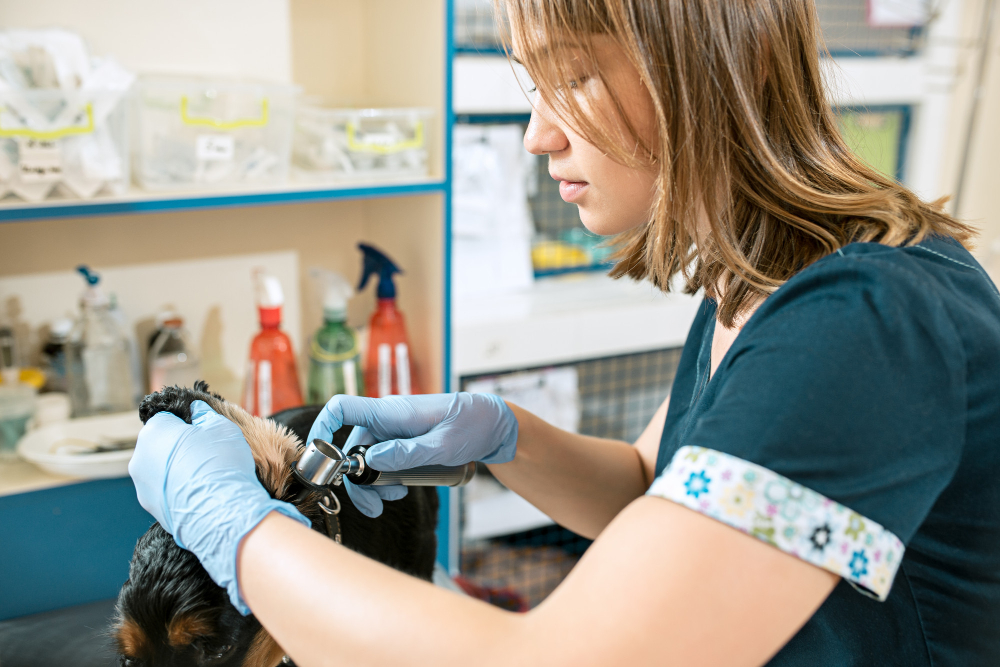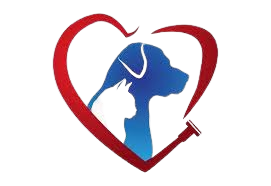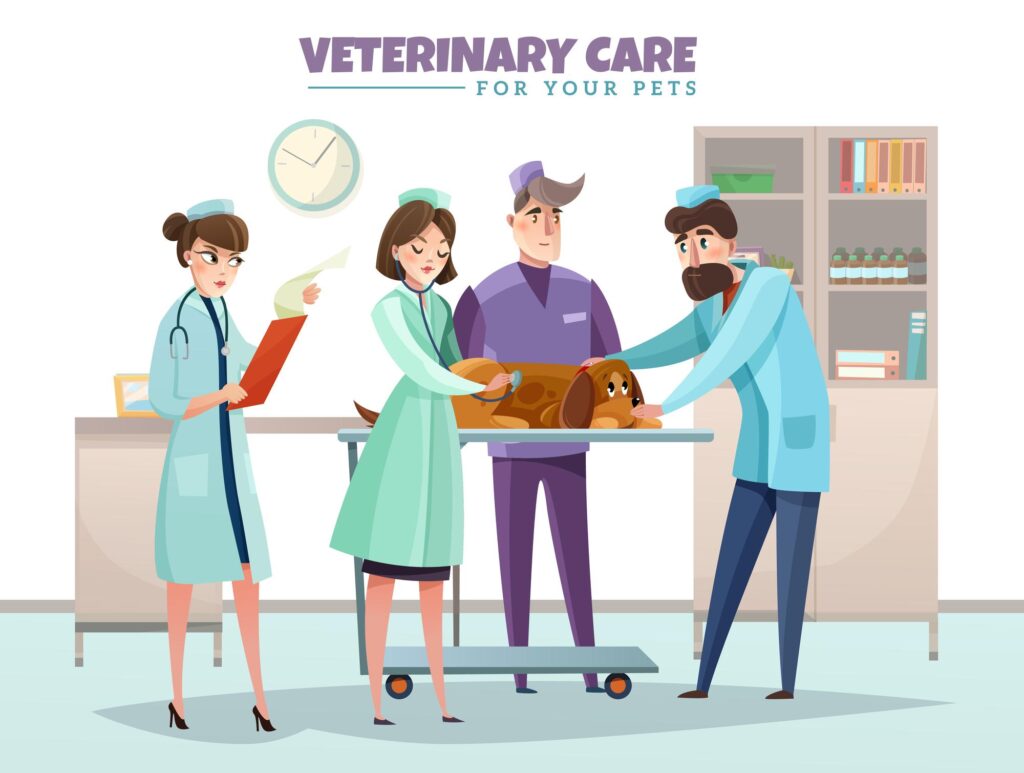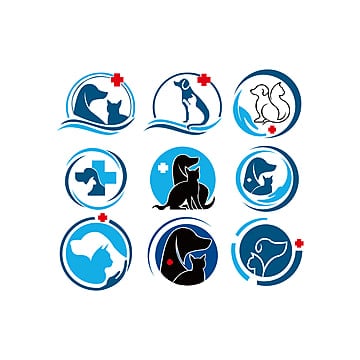What is Veterinary Science?
A subfield of medicine called veterinary science is concerned with the health and welfare of animals. It includes the identification, management, and avoidance of illnesses in a variety of animals, including exotic species, pets, livestock, and wildlife. Additionally, Veterinarians, or medical specialists who work with animals, are essential to maintaining food safety, animal health, and public health. Moreover, They are qualified to carry out operations, provide prescriptions for drugs, and provide guidance on the diet and care of animals. The study of animal behavior, genetics, breeding, and zoonotic diseases—diseases that can spread from animals to people—is also included in the field of veterinary science.
Veterinarians work in zoos, farms, clinics, research facilities, and animal shelters, among other places. A thorough grasp of biology, chemistry, and animal physiology is necessary for the field, as is a humane attitude toward animal welfare. Howover, The area of veterinary medicine is constantly evolving due to improvements in technology and therapies, which aim to enhance the well-being of animals. In addition to providing medical care for sick animals, veterinary science also aims to promote preventive care and teach farmers and pet owners best practices. Additionally, Maintaining the wellbeing of animal populations and, consequently, the environment as a whole depends on this science.

Veterinary Science Highlights
Veterinary science is a branch of medical science that deals with the prevention, diagnosis, treatment, and control of diseases in animals. It plays a crucial role in ensuring the health and welfare of animals, which is important not only for the animals themselves but also for human health and the economy. Here are some key highlights of veterinary science:
Animal Health and Welfare
A sustainable agriculture and food production system must prioritize the health and welfare of animals. Not only is it better for the animals when they are healthy and well-cared for, but it is also better for the food the animals produce and its safety. Provision of sufficient food, a suitable place to live, and quality medical care are examples of good welfare practices. Animal health must be maintained through preventive measures like immunizations and routine checkups. Furthermore, humane handling and stress reduction are essential components of ethical treatment of animals, as they promote their general wellbeing. Encouraging the health and welfare of animals helps to make farming and food production more ethical and responsible.
Public Health
The science of preserving and enhancing community health via illness preventive research, policy development, and education is known as public health. It focuses on addressing the social, environmental, and economic issues that affect health outcomes in order to create environments where people can be healthy. Initiatives related to public health include immunization campaigns, health education, maintaining good hygiene, and managing infectious diseases. It also entails getting ready for and handling medical crises like pandemics. Public health initiatives seek to promote population well-being by lowering health inequities and guaranteeing access to healthcare through the promotion of healthy habits.
Surgical and Medical Care
Medical and surgical care are vital parts of healthcare that deal with a variety of illnesses and ailments. In surgical treatment, procedures are carried out to treat illnesses, injuries, or deformities with the goal of regaining function or reducing discomfort. It includes a number of specializations, such as neurosurgery, orthopedics, and cardiothoracic surgery. Contrarily, medical care entails the diagnosis and treatment of ailments using non-surgical methods such medicine, physical therapy, and lifestyle modifications. It covers routine check-ups, chronic disease management, and preventive care. Surgical and medical care are essential for illness management, preserving health, and enhancing patients’ quality of life.
Veterinary Research
Animal welfare and health are greatly advanced by veterinary research. It include researching illnesses, cures, and preventative measures to enhance the well-being of animals of all kinds, including pets, livestock, and wildlife. This study aids in the creation of novel drugs, vaccines, and diagnostic instruments in addition to improving current procedures to provide better treatment. In order to safeguard the public’s health, veterinary research also aims to comprehend zoonotic illnesses, or those that can be transferred from animals to people. It also helps to raise standards for animal care and husbandry, ensuring that animals receive humane treatment and have their needs satisfied. Veterinarians and scientists can address new health issues and advance animal welfare worldwide through continuing research.
Specializations
In order to deliver skilled care and cutting-edge treatment, specializations in the healthcare and veterinary industries concentrate on particular areas of practice. Specialties in medicine include neurology, which treats neurological illnesses, cardiology, which deals with heart conditions, and oncology, which focuses on treating cancer. To handle complicated cases and provide individualized treatment programs, each specialty calls for a high level of training and experience. Similar to this, veterinary specialties like internal medicine, surgery, and dermatology focus on particular facets of animal health, including controlling skin issues, treating internal ailments, and carrying out intricate surgeries. Through research and innovation, these specialized fields help clinicians provide focused, high-quality treatment while also improving patient outcomes and developing their particular fields.
One Health Initiative
The One Health Initiative is a cooperative strategy that acknowledges the relationship between environmental, animal, and human health. By combining efforts from several fields, it seeks to solve health issues and enhance overall health outcomes. This program aims to prevent and control zoonotic diseases—diseases that can spread from humans to animals—by promoting cooperation between environmental scientists, veterinarians, and healthcare professionals. It also highlights how environmental elements like pollution and climate change affect human health. The One Health Initiative aims to provide sustainable solutions for global health concerns, strengthen disease surveillance, and improve health policies through interdisciplinary cooperation and holistic approaches.
Education and Training
Training and education are essential for gaining knowledge and proficiency in a variety of disciplines. Formal instruction in the areas of healthcare and veterinary medicine is provided through degrees and certifications, including fundamental concepts in anatomy, physiology, and illness treatment. By offering real-world experience and useful skills in places like clinics, hospitals, and research labs, training enhances education. Maintaining high standards of practice and staying up to date with innovations requires professional development and continuing education. When combined, education and training make sure that professionals are ready to handle changing problems in their fields, adjust to new technologies, and provide effective treatment.
Role in Agriculture
To increase production, sustainability, and innovation in agriculture, education and training are essential. They equip farmers and agricultural laborers with the know-how and abilities required to use best practices in animal husbandry, insect control, soil preservation, and crop management. Training programs emphasize cutting-edge methods to increase productivity and lessen environmental impact, like precision agriculture and sustainable farming practices. Agricultural technology and market trends education also aid in decision-making and condition adaptation for producers. Education and training promote advancement in agriculture by providing people with current knowledge and abilities, which improves yields, resource management, and farm success in general.
Ethical and Legal Responsibilities
Integrity and responsibility across a range of professions are contingent upon one’s compliance with legal and ethical obligations. Professionals should uphold professional norms and prioritize the well-being of clients, patients, or stakeholders by acting with honesty, respect, and fairness. Confidentiality preservation, averting conflicts of interest, and offering skillful and sympathetic care are all part of this. Professionals are legally required to abide by the laws and rules that control their practice, such as those pertaining to licensing, reporting requirements, and safety standards. Respecting these legal frameworks guarantees that activities are carried out legally, safeguarding the integrity of the professional and the general public. Legal and ethical obligations work together to protect the values of justice and professionalism, assure quality, and foster a culture of trust.
Career Opportunities
1. Veterinary Practitioner
2. Veterinary Surgeon
3. Animal Nutritionist
4. Veterinary Pathologist
5. Veterinary Pharmacologist
6. Animal Behaviorist
7. Wildlife Veterinarian
8. Veterinary Public Health Specialist
9. Veterinary Researcher
10. Veterinary Technician/Nurse
11. Animal Control Officer
12. Equine Veterinarian
13. Pet Nutritionist
14. Veterinary Consultant
15. Academician/Instructor
16. Veterinary Epidemiologist
17. Zoological Veterinarian




